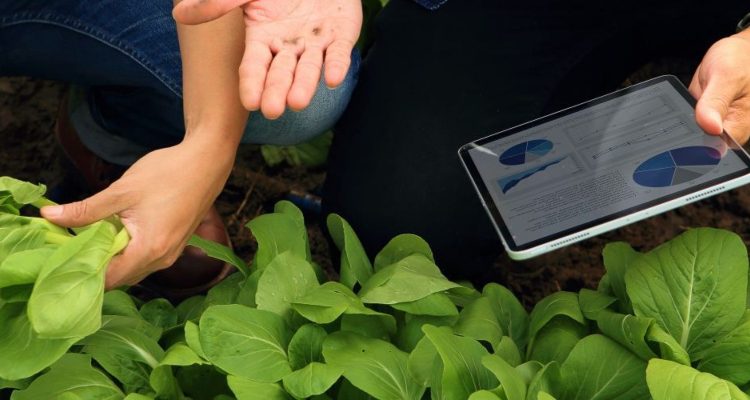◊ By Santosh Shinde
Note: To find organic product suppliers in India, buy the Organic Directory
The Government of India has set up a few projects to accomplish the dual solution of mechanisation and digitisation.
A lot of Organic produce is lost due to crop failure, and digitisation can help mitigate this problem. Computer and cloud-controlled technology now intersperse the space of organic produce, making it more efficient, reducing uncertainty and reliance on non-concrete data, and increasing productivity along with profitability.
Digital technology can be used for small, medium to large sized organic farming groups. It simplifies on-training, conversion plan, and farm activities, harvest planning, quality control, packaging, sales, documentation and finance, which in turn helps the business in regulating market demand and supply of organic products, and drive higher profit margins.
Farm analytics dashboards offer smart data insights, which enable users to take correct and timely decisions.
The digital platform can be customised or integrated with legacy financial software or smart hardware devices as per the unique requirements of the farm/FPO.
APPLICATIONS OF DIGITISATION SOFTWARE FOR ORGANIC FARMING
- Supports multiple crops, locations and users
- Covers entire ‘Farm to Fork’ cycle
- Farmer group management
- Labour and inputs optimisation
- Yield estimation and harvest planning
- Geo-mapping and smart crop advisory solutions
- Production and sales planning
- Farm analytics for data driven decisions
- Organisational hierarchy mapping
- Can be accessed over web, mobile or tablet
The primary and most important problem that is being dealt with through the help of technology and digitisation is Traceability.
Traceability gives total visibility of the produce from the farm to the customer for different value chains. QR code or scanner tag-based traceability solutions permit buyers to follow the footprint of the food to the farmer groups that grew it.
This is particularly helpful with the new generation of consumers who are aware of the issues associated with cultivation.
In this application, information is sourced through dynamic tools, using the web or cell phones. Digital technology can be utilised to manage the supply chain of the produce, which introduces transparency into the entire chain consistently.
The framework can digitise all farm and farmer activities and record acquisition exchanges. This also leads to timely and rightful payment to farmers. Another utilisation of digital technology is market linkage, which associates ranchers and purchasers through a gateway.
This encourages the rancher to take an interest in worldwide business sectors by offering visibility to the purchaser. It educates farmers on the current market costs and prospects, enabling fruitful negotiations.
Advanced innovation in agribusiness also finds a spot in monetary administrations, as it can help deal with all budgetary administrations in farming—from credit and instalments, to crop insurance and collections. With a platform that can be incorporated with budgetary establishments, it provides transparency and accuracy.
Digitisation also helps in Farm Management. Farm management consists of digitisation of farm and farmers’ profiles. Geo-tagging, geo-referencing and biometric data are also fields where digital technology can assist meaningfully.
Farmer Advisory Services is an arrangement through which ranchers can receive sound and instant messages on climate estimates, crop schedules; advice on inputs and irrigation, market value, seeds, etc.
ABOUT THE AUTHOR

The author is COO & Co-Founder, FarmERP, which offers digital solutions for farming and agribusiness.



I want contect your team for discicion
Kindly contact them directly: https://www.farmerp.com/contact